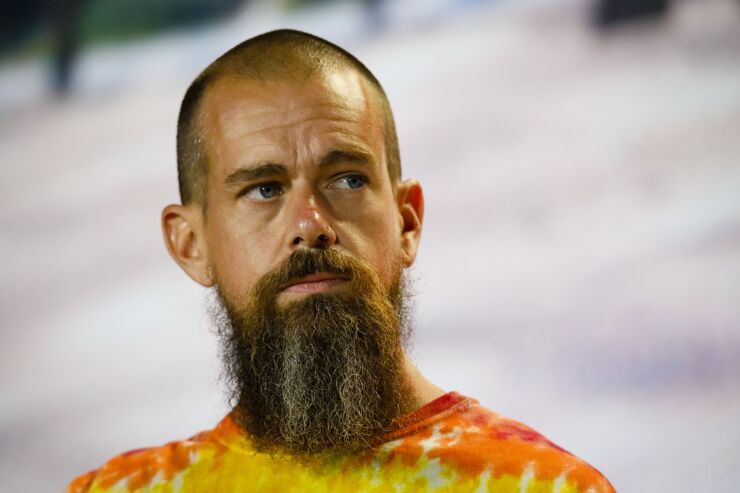
When Block paid $29 billion for
The payment company has named Afterpay co-founder Nick Monlar as its head of sales across Block — a key part of a strategy to change how Block builds and sells products.
"It will result in much better technology, much better design and much better products," said Jack Dorsey, CEO of Square, during Thursday's earnings call.
For the quarter ending June 30, Block reported total net revenue of $6.16 billion, up 11% from $5.5 billion the prior year. Gross profit was $2.23 billion, up 20% from about $1.9 billion the prior year. Earnings per share was $0.98, better than CNBC analysts' expectations of $0.84. Analysts predicted total net revenue of $6.28 billion.
As Dorsey works to generate a new period of growth for Block following a technology industry slowdown in 2022 and 2023, he is trying to improve how the company responds to opportunities. Block is migrating away from organizing along business lines such as its Cash App, Square, Tidal and other units toward a structure that focuses on functions such as engineering, product development, sales and other tasks.
"This means an employee's discipline, such as engineering, design, product or sales will drive who they report to and how they work," Dorsey said, adding that Molnar will focus on improving focus on Block's merchant-facing Square unit and connecting Square's ecosystem and scale with Block's Cash App, which Dorsey said would be a differentiator for the company. Afterpay has been a solid performer for Block, which reported Afterpay's gross merchandise revenue, or the measure of the full value of the business, was up 21% in the past year.
"With this reorganization, we'll be able to move faster with new technology such as the new AI models that have been coming into the market," Dorsey said, indirectly referencing generative AI, which payment companies are using to improve internal work, marketing, security and other tasks. "This technology will really level the playing field for us."
While Block's reorganization may be taken as a sign of weaker near-term trends, it is ultimately positive for the company, said Jeffries analysts in a research note, adding that there were indications that the previous structure created friction that slowed decision-making and contributed to a decline in growth for Block's gross payment volume, or the total monetary value of all transactions. This weaker GPV growth is due to Block not having adequately improved products and its ability to deliver them at a speed and scale that can draw larger merchants, Jeffiries said.
Block has already moved away from a structure that placed a general manager in charge of different products with their own product teams, and shifted to a reporting structure that is designed to optimize allocation of resources across the entire company, Jeffiries said. "It says to us that Block is willing to make significant changes, which we believe are necessary to change the U.S. GPV trajectory," Jeffries said.
Block recently announced it would
On Wednesday, Block said its top priority is "banking our base" by driving paycheck deposit adoption and increasing inflows into accounts. It also said the Cash App Card has more than 24 million active users, up 13% over the prior year, with a 10% growth in inflows.
Dorsey has been
Block has
Block's goal is for Cash to operate like a social bank for its users, serving as a base product that can be used to access lending, payments, investing, cryptocurrencies and other services designed for households with incomes up to about $150,000 and Square's base of small to mid-sized businesses.
The company is also pouring investment into cryptocurrency, pledging to use 10% of its gross profits from bitcoin investment toward buying more bitcoin.
These moves have spurred a financial rebound for Block, which posted earnings that beat analyst expectations in the
"This new organization will enable more collaboration and will also help people to get to the full mastery of their craft," Dorsey said.
Block rival PayPal is undergoing a






